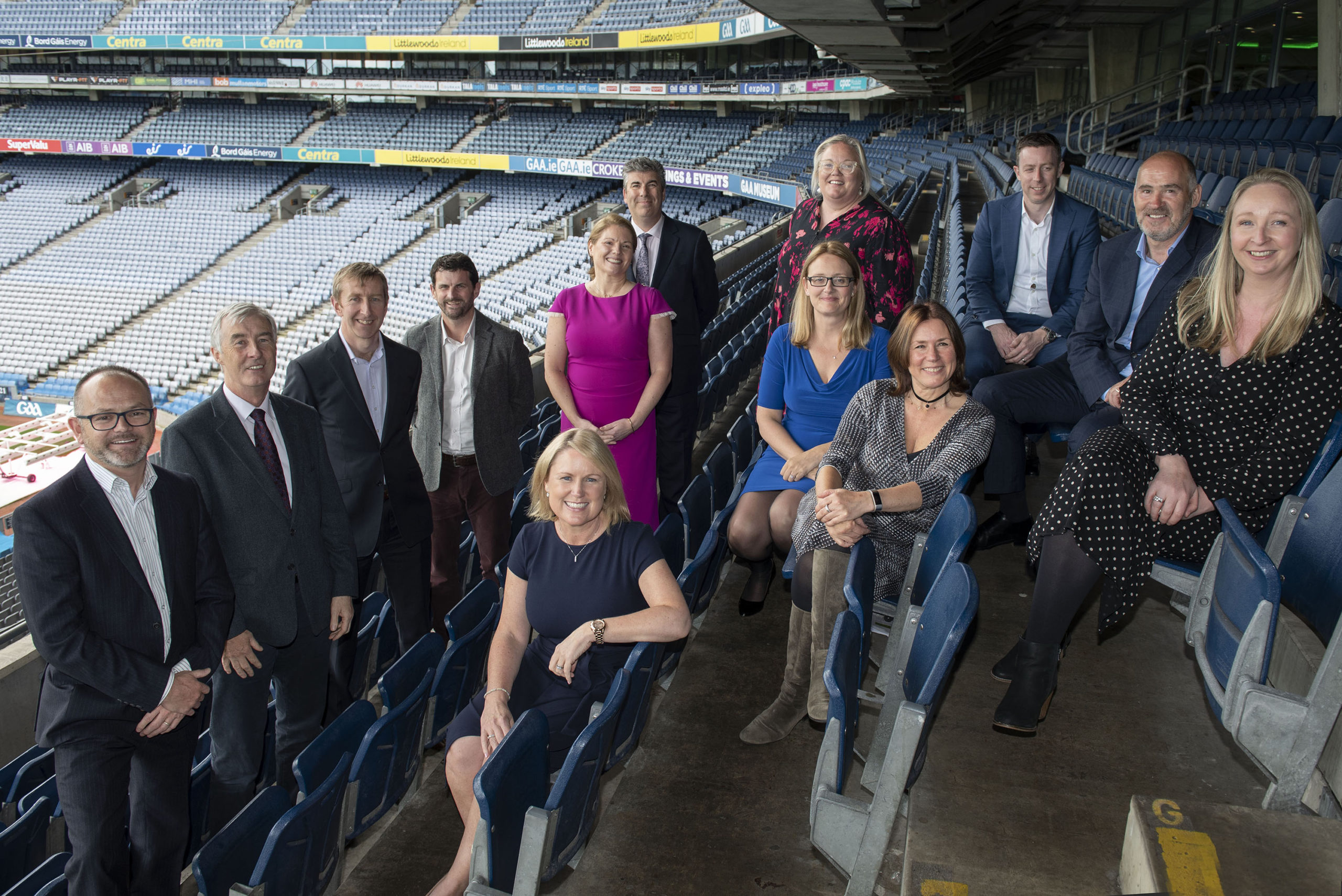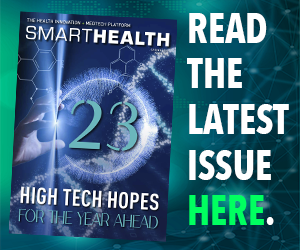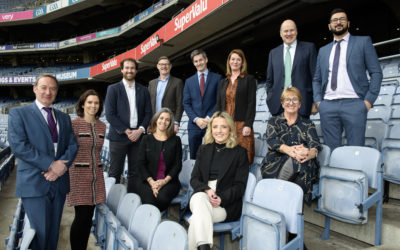Now in its 40th year, HealthTech Ireland’s latest annual conference showed the industry is at the cusp of great change that will benefit all, writes Quinton O’Reilly
The leaders, innovators, movers, and shakers were all present at this year’s HealthTech Ireland Association Annual Conference 2022 at Croke Park. With HealthTech Ireland celebrating its 40th anniversary this year, it reflected much of the progress and innovation that the sector is known for and the challenges and many opportunities facing it.
In his opening remarks, the chair Ivan Yates mentioned the day would see them getting down and dirty in every aspect of the health tech sector and the key theme of collaborating and achieving a bright future together resonated throughout the day. In the welcoming remarks from Ray Cahill, Chairperson of HealthTech Ireland Association and Susan Treacy, CEO of HealthTech Ireland Association, the importance of working together was key.
“How can we encourage collaborations and how can we spark and fan the flames,” he asked. “Real change is hard to achieve on your own but great things can come when we work together. The last few years show what happens when you do that.”
Treacy mentioned the three legs of the stool that make up this sector – public, private and research – as key to the sector’s success. In his opening address, Tim Hynes, Chief Information Officer, AIB and board member of the HSE, covered the topic of digital innovation and highlighted a critical distinction for all in the sector to know – the difference between invention and innovation.
In short, invention is the creation of a tool or service but how its applied is where innovation comes in. He highlighted how tech should be a catalyst for change and the key elements that allow innovations to be successful. While listing them, he warned against the pitfall of a particular component.
“One crucial thing to do and where most change fails is that there must be a shared vision,” he explained. “It must be something that people feel will make a difference and feel inspired about what we’re going to talk about.” This mindset was reflected in the first panel session on collaboration, which featured a star-studded cast.
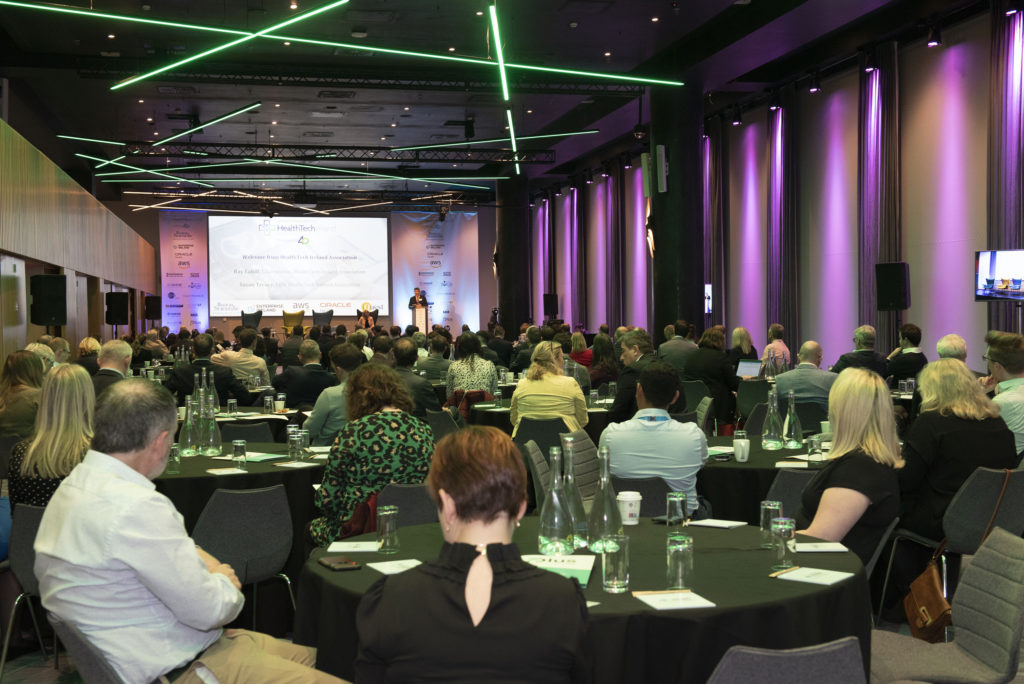
The panel featured Dr Christian Stafford, digital health sector lead at Enterprise Ireland, Dr. John Sheehan, radiologist, clinical director, advisor, and Ireland Digital Health Leadership Steering Group, Professor Ronan Cahill, professor of surgery at UCD and the Mater Misericordiae University Hospital (MMUH) and Dr. Natalie Cole, head of innovation at Tallaght University Hospital.
Working together isn’t just important for sharing data or improving the current system, it’s also crucial for those medtech companies to bring their expertise overseas as you can learn much from other jurisdictions.
“Collaboration is the key to success,” said Dr. Stafford. “When a company moves into another market for exporting, the first question they’re asked is what are you doing in your own domestic market and it’s a challenging question. By themselves, they’re not going to transform the theme but if you add all of these together, you’re building an opportunity.”
Stronger together
Collaboration appears in many forms and digital transformation is one example. The topic of data interoperability, making the best use of data in systems, was covered in a fireside chat with Thomas Sharkey, healthcare lead for AWS Republic of Ireland and Mike McCann, group chief information officer at Blackrock Health.
Shining a light on how complex these systems are now and how important they are, Sharkey mentioned that in the past,
there may have been one or two systems handling data. Now there can be as many as 80 different systems working together.
“The proliferation of data is huge and customers’ expectations are driven by everyone using their phone to organise their lives,” he added. “Data interoperability shares that data and lets you access and do something with it to enable great efficiency. Operationally, we can provide customers and partners with toolkits to allow them to build new offerings and new ways of caring and providing to their population.”
That date isn’t just to have better information for medical professionals to work with. A key theme was reducing the overall burden on hospitals and other medical faculties in the long run. Having a shared standard which allows public and private sectors to share data was one area discussed during the panel on strategic collaboration.
The group included Miguel Coelho, business development director at Oracle Health; Miriam Roche, interim director of informatics/CIO at St James’s Hospital, Dublin; Fran Thompson, chief information officer at the HSE and patient advocate Gary Boyle.
Throughout the conference, there were regular reminders that the patient is always at the centre of these decisions. Thompson mentioned that the end-to-end journey with the patient at the centre is key to success.
“You can have a piece of tech that works but (the big questions are) how does it integrate across the whole domain and how do we maximise the data we get from it,” he added.
Speaking of reminders, Coelho added that the pandemic gave a great example of collaboration between the different sectors in setting up vaccine management and how it should happen more often, rather than waiting for the next crisis to hit.
This was also hit upon with the panel on value-based procurement featuring Clare Harney, CEO of HD Health; Mark Coffey, senior director international accounts for Johnson & Johnson Med Tech EMEA; Professor Dennis Ostwald, CEO of WifOR and John Swords National Director, HSE Procurement. Defining what value actually means to each stakeholder is crucial to success as it doesn’t mean just financial value but also value in medical, social and economic circles.
It was summed up best by Ostwald who mentioned the health economy isn’t just an essential driver of growth and employment but greater wealth too, hence why it’s so important to build up support for better health services. Likewise, this same issue was highlighted by Lars Dahl Allerup, co-founder & CEO of Rethink Value, a think tank that focuses on value-based healthcare, in his talk about fostering innovation through procurement.
In a report it released in February 2020, it found that one of the big problems behind healthcare systems industry scaling was the
lack of a common language to describe the value chain and agree what value actually means. “We found that there was a lack of a common language [around the word value], or sometimes it’s the same language but with different dialects,” he explained. “Just understanding that the word value means something different to all of us.”
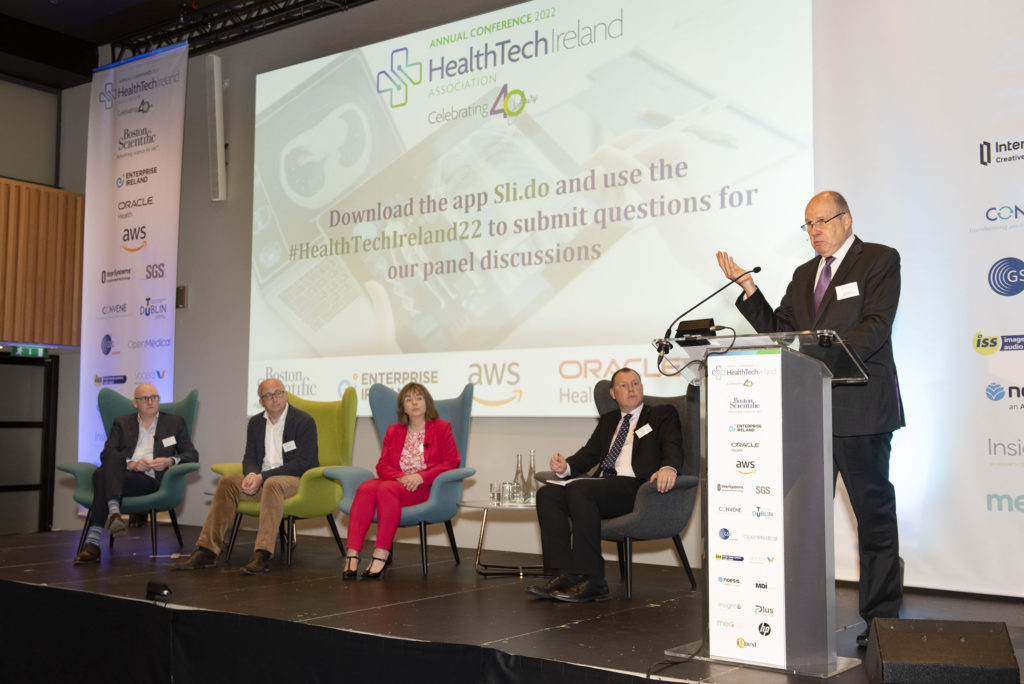
Host Ivan Yates with speakers at this year’s conference
Challenges ahead
While much of it is positive, some significant challenges are coming up for the industry, with regulations and sustainability being two covered in the afternoon.
For EU regulations, a panel discussion featuring Jane Massy, senior business consultant, SGS Ireland; Una Kearns, founder of
MyPatientSpace; Nicola Hickie, regulatory and policy manager, the HPRA tackled the many issues including standards, compliance,
and the unique challenges facing medtech.
Some may be interested to know many apps that have a medical purpose will be defined as medical devices. If an app is used as part of making a medical decision at any point in time, it becomes a medical device, mentioned Kearns. Similar to that was the final panel on sustainability featuring Michelle Sullivan, head of public affairs in UK & Ireland for Boston Scientific; Dr. Roisin Molloy, founder and CEO of TriMedika and Marion Briggs, sustainability manager at HealthBeacon.
Sullivan mentioned the importance of carbon literacy in not just spotting opportunities but appreciating the scale of other
challenges. “Once you look at what you’re all doing with that sustainable focus, you start to see the easy wins and you also start to appreciate the things that aren’t very easy,” she added.
While there are significant challenges, there’s great reason for the industry to be optimistic about the changes ahead. Martin Curley, director of digital transformation and open innovation at the HSE, gave a talk about the exciting outlook for the industry. While Ireland is behind other EU countries, it presents an exciting opportunity to leapfrog them by creating a new foundation and learning the lessons from them.
Key to that is the Stay left, Shift left 10x plan, which will drive innovation forward but while looking to the future is important, it’s come a long way since HealthTech Ireland was established 40 years ago.
“Today has demonstrated that we have plenty more ground to cover, and we all want to cover that ground. Many of us even have pretty good maps for that new territory,” said Vicki O’Reilly, head of quality, compliance and regulatory affairs at Sisk Healthcare and deputy chair for HealthTech Ireland Association.
With the announcement that the next MedTech Forum, the largest health and medical technology industry conference in Europe, will be held in Dublin in 2023, all eyes will be on how the next 12 months will shape the industry.
This year’s HealthTech Ireland Association Annual Conference took place on May 25 in Croke Park, Dublin.
Photos: Maura Hickey

